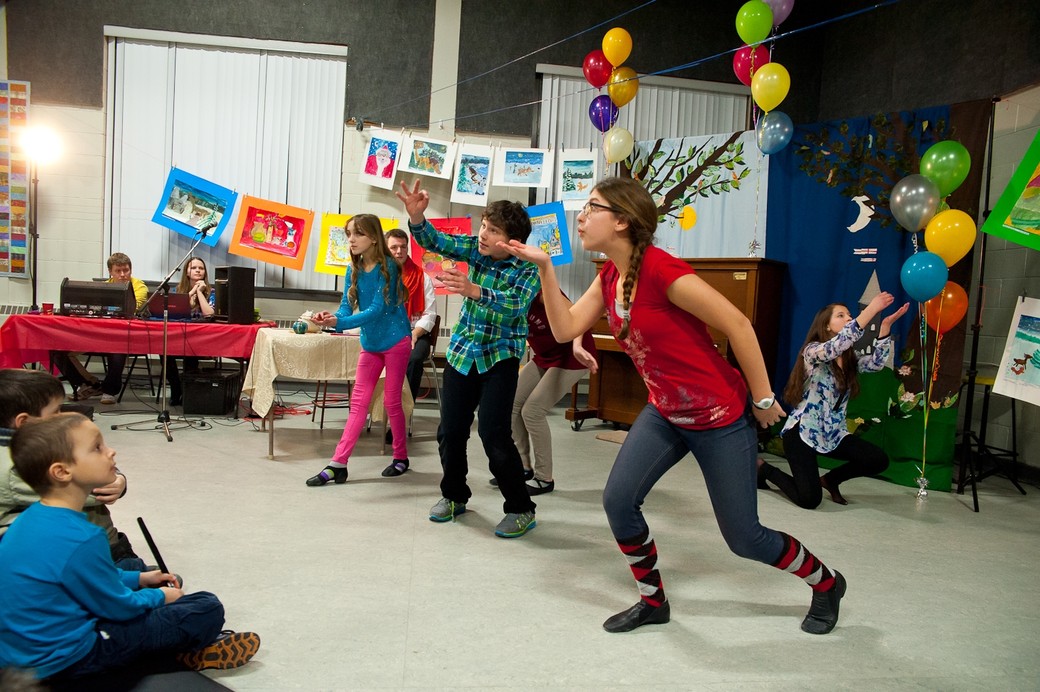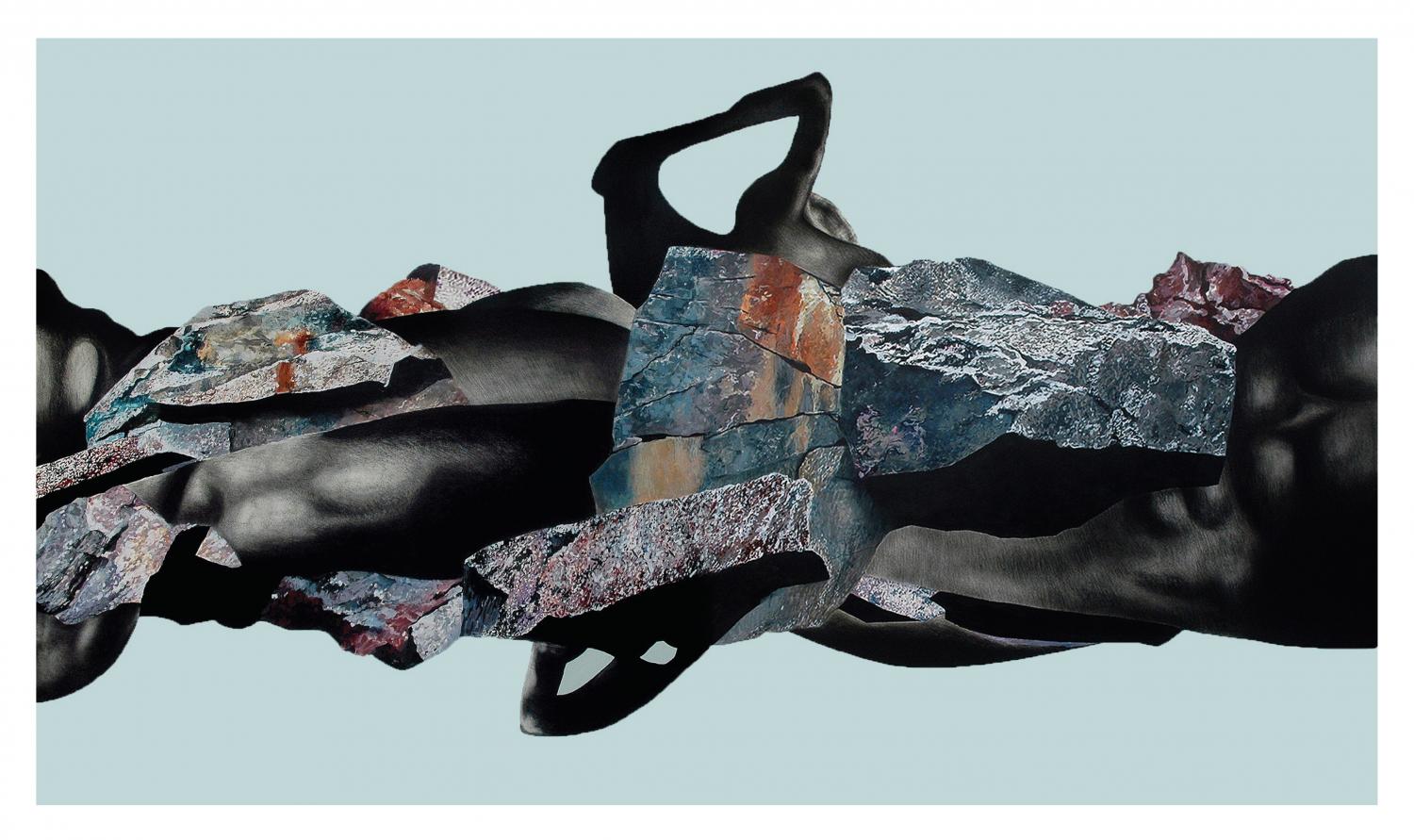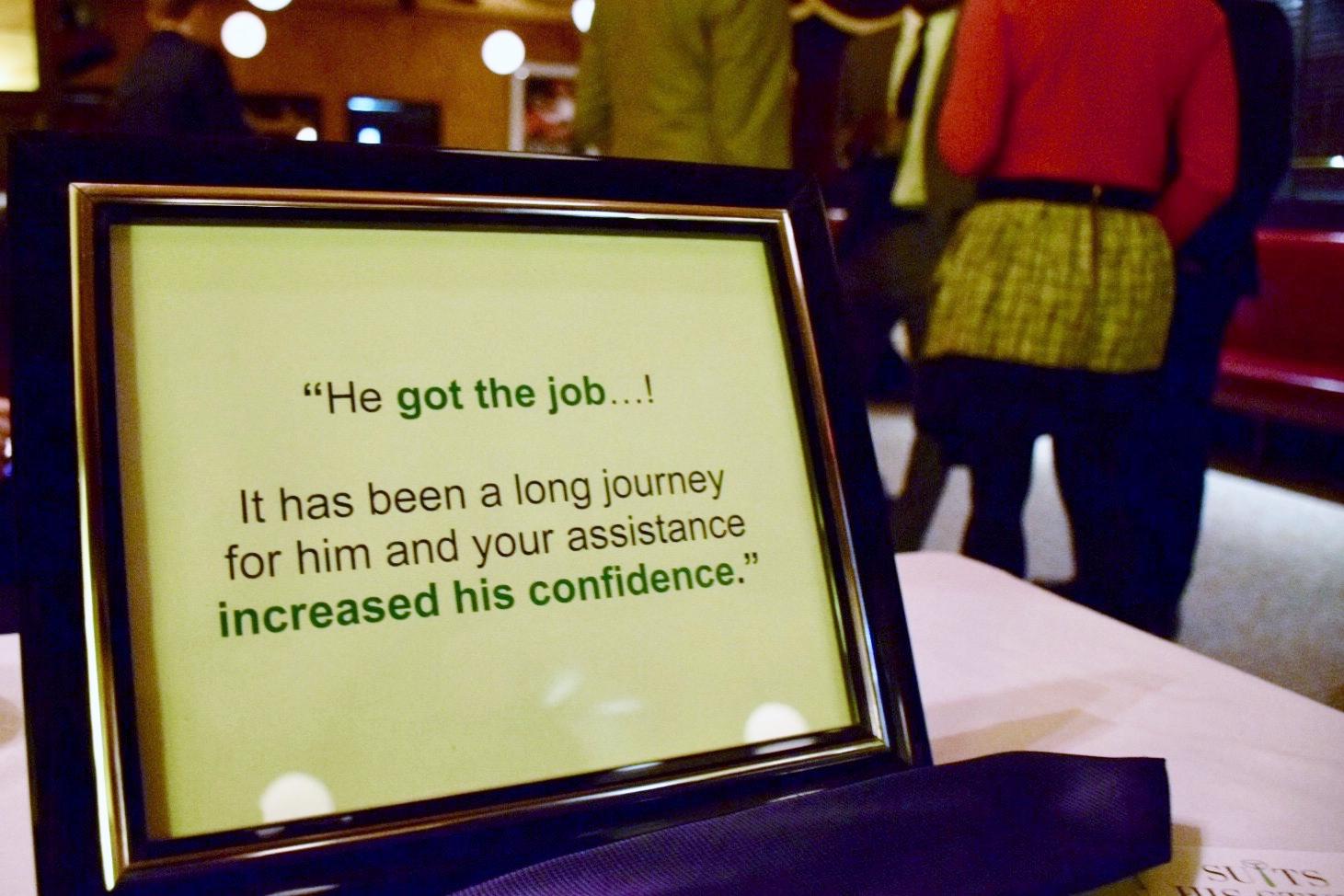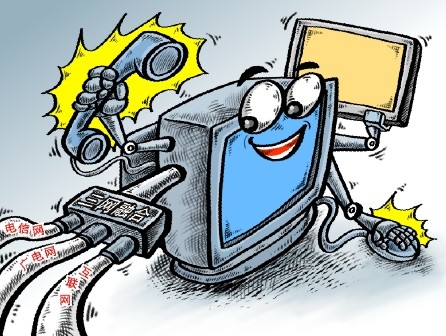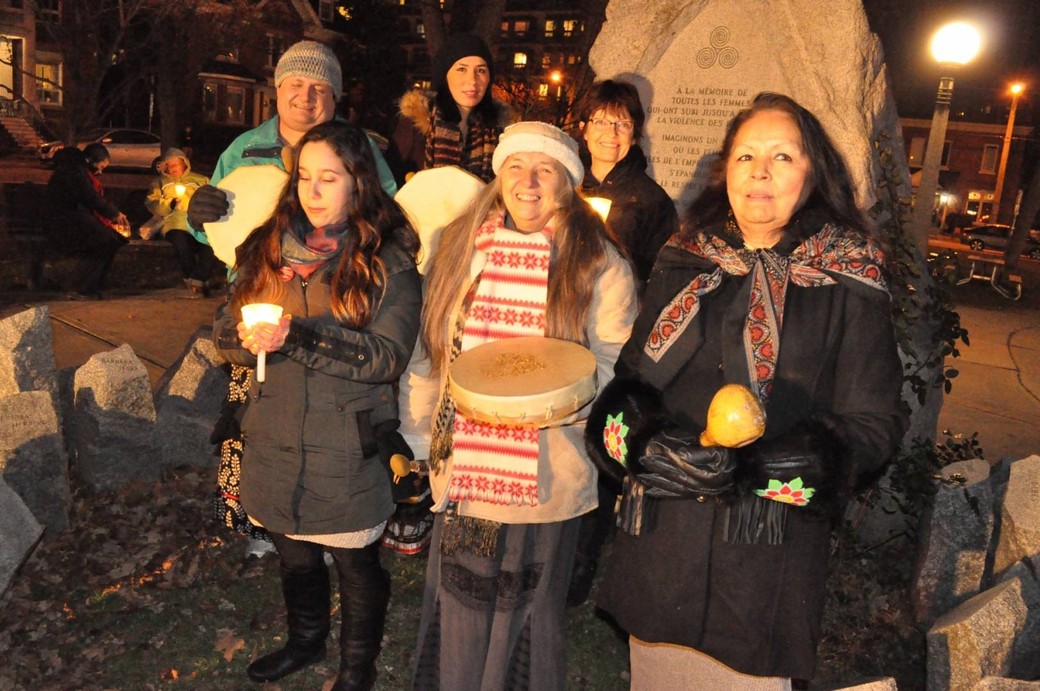
Before the National Inquiry: Countering Stereotypes Through Education, Employment and Art
Aboriginal community members at the annual Sisters In Spirit Candlelight Vigil in Ottawa in October. Photo by Damira Davletyarova.
“I embrace you my sisters; and myself too
We will go forward with strength anew
Our friendships will travel with us down the road
Fortified by the stories we now hold…”
Excerpt from We Retreat by Bape Ande Kwe, Laughing Crow Woman – Lynda Stewart
The national public inquiry into missing and murdered Aboriginal women will bring much needed attention to the most ignored issue in Canada. It should also bring some answers and healing to indigenous families, whose grand-daughters, daughters and mothers one day simply vanished from their lives. Aboriginal communities across Canada more than ever hope the newly-elected Liberal government will stop the ongoing calamity.

Meanwhile, indigenous leaders say, Canadians and Aboriginal people shouldn’t wait passively for the results. There is something everyone can do now to speed healing.
In fact, Claudette Dumont?Smith, the executive director of the Native Women’s Association of Canada (NWAC), says that the federal government shouldn’t be given all of the responsibility moving forward, Aboriginal women should be included as well.
“Aboriginal women are disempowered because of the way the things are right now. But I think, if they were involved in the development of policies and programs, given the financial assistance to deliver those programs, Aboriginal women could help themselves,” Dumont?Smith says.
It’s the history, reminds Dumont-Smith. The history of colonialism, residential schools, abuse and racism are all added up to the tragedy of missing Aboriginal women. The resulting negative stereotypes are unfair and often inaccurate, and unfortunately, according to Allan Ryan, they can’t be erased.

Ryan is an expert in Aboriginal affairs and art at Carleton University. He says that although labels can’t be destroyed they can be replaced with new knowledge and awareness. Hope lies in art, Ryan says, where native people express their voice and inner soul.
“Those stereotypes are never going to go away, that is disheartening. But we can counter them,” Ryan says.
As a teacher, performer and advocate of Aboriginal people and culture, Ryan has been doing this for the past four decades. 15 years ago, he launched the New Sun Conference, where native and non-native people are invited to express their voice and identity through poems, music and paintings. Today, the conference has become a festival, where Aboriginal people are working in collaboration with non-native people.
Much has changed in the past years, and the art reflects the shift in attitude. Modern aboriginal art became more positive and hopeful. Ryan speaks of George Littlechild, a modern native artist and the child of a residential school survivor, who in the journey of reconnection with his community paints colourful female pictures to bring light and inspiration.
Ryan and his Inuit students have also traveled to China, where they exhibited Aboriginal self-portraits and screened films by Aboriginal filmmakers. The Chinese public was impressed. They wanted to know more about Canada and Aboriginal people.
“Those people knew nothing about Canada. There were no stereotypes to reverse. I was introducing them to Canada through the art of Aboriginal people,” Ryan says.

Unfortunately, engrained negative beliefs arouse less interest and attention at home. Both Dumont-Smith and Ryan think the national public inquiry into Canada’s missing and murdered women will change this. The inquiry will raise the profile of the issue. The findings would impress Canadians, and open the eyes to the crisis the indigenous women face.
“[The] inquiry will say to the rest of the country: This is not acceptable. This is not who we are as Canadians. We really need to look at those root causes. There are men out there who do not value the lives of Aboriginal women,” Ryan says.
Aboriginal communities across Canada are more than ever inspired by changes in the government. They are preparing and holding many events, exhibitions and shows hoping for you to attend them and hear their stories.
In one of the upcoming events, Tracey Lindberg will be presenting her novel Birdie. It is a story of a Cree woman who is looking for a place in life and understanding. The reading and discussion will be held at 7 p.m. on January 19 at the Octopus Bookstore, 251 Bank St. 2nd floor.

